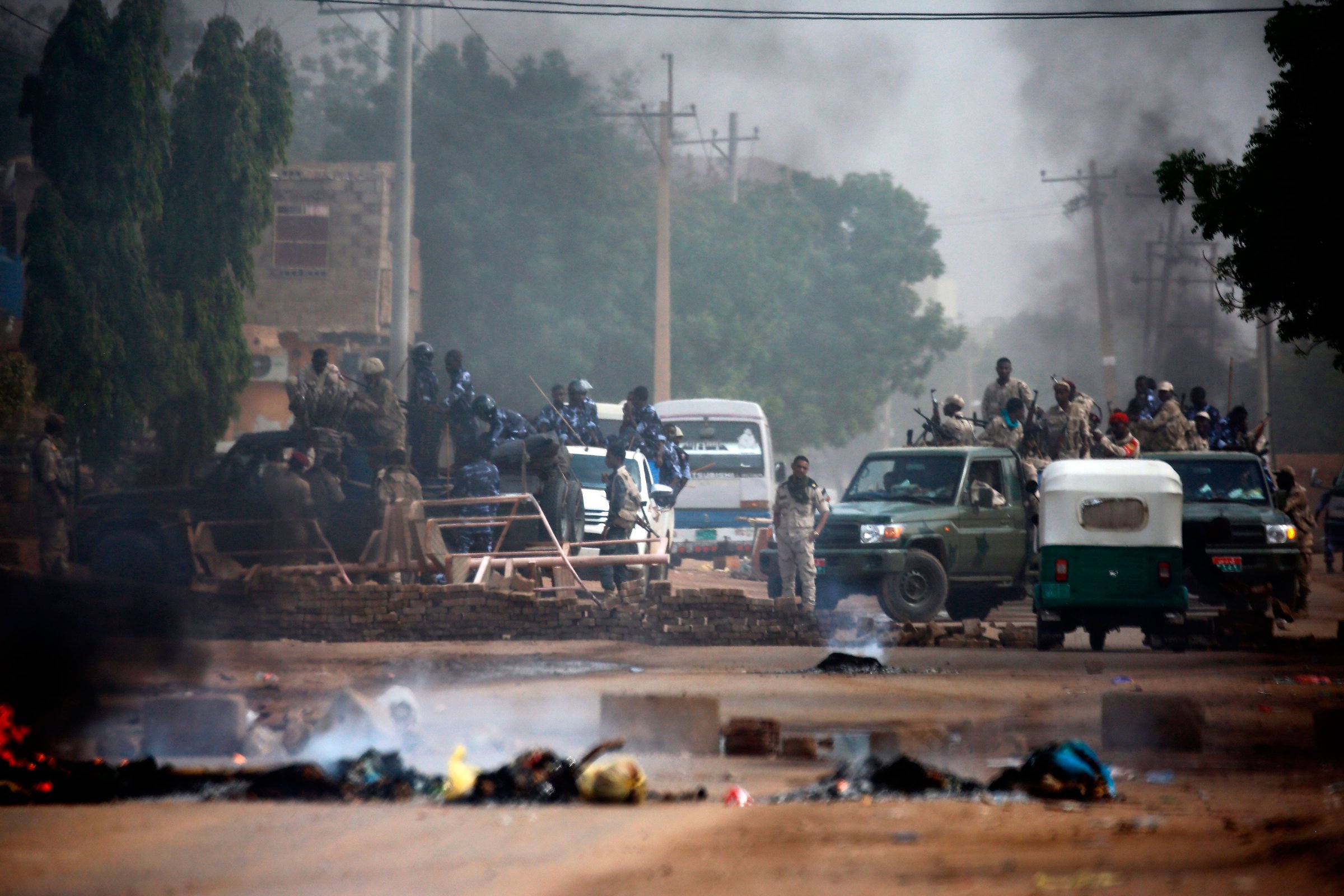
At least 60 people were killed and hundreds wounded in Khartoum on June 3 when the Sudanese military raided a peaceful sit-in calling for democratic reform. Troops shot into the crowd with live ammunition, set tents alight and beat fleeing protesters. By the next day, the once festive camp, which was set up by activists in April after the overthrow of President Omar Hassan al-Bashir, was dismantled. So too were hopes that Sudan could peacefully transition to civilian rule after a 30-year dictatorship.
Negotiation Breakdown
The April coup came after months of popular protest, and led military leaders and opposition groups to agree on a three-year transition to democracy. But talks broke down when the protesters insisted the Transitional Military Council step down for a civilian-led interim body to oversee the transition. The day after the June raid, council leader Abdel Fattah al-Burhan declared on state TV that earlier agreements with the protesters would be canceled and that the council would preside over national elections within nine months. The only way to rule Sudan, he said, “comes through the ballot box.”
History Lesson
Al-Burhan may have spoken the language of democracy, but to many, the June 3 raid proves the military has little intention of relinquishing power for good. Pro-democracy activists and opposition parties say nine months is not enough time to muster resources, prepare voter rolls and strengthen civilian institutions after three decades of repression. They fear elections would serve up a weak leadership that could be easily overthrown–which is how al-Bashir took power back in the 1980s. This time, the protesters say they have no intention of repeating the same mistakes.
On Their Own
U.S. officials criticized the military crackdown, but with little leverage, and even less interest in getting involved in yet another regional uprising, the repercussions are likely to be limited. For their part, the protesters are determined to carry on with the nationwide civil-disobedience campaign that first brought down al-Bashir, even if it brings more crackdowns. “We have no choice,” protest spokesman Mohammed Yousef al-Mustafa told the Associated Press, “but to continue until the fall of the military council.”
More Must-Reads From TIME
- Dua Lipa Manifested All of This
- Exclusive: Google Workers Revolt Over $1.2 Billion Contract With Israel
- Stop Looking for Your Forever Home
- The Sympathizer Counters 50 Years of Hollywood Vietnam War Narratives
- The Bliss of Seeing the Eclipse From Cleveland
- Hormonal Birth Control Doesn’t Deserve Its Bad Reputation
- The Best TV Shows to Watch on Peacock
- Want Weekly Recs on What to Watch, Read, and More? Sign Up for Worth Your Time
Contact us at letters@time.com